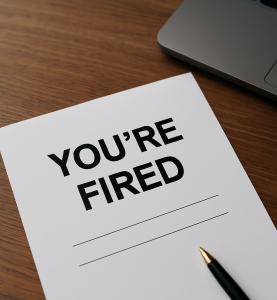Lawyer Monthly got back in touch with the team at Phillips & Associates, and this month we speak with Gregory W. Kirschenbaum who is an experienced litigator who advocates zealously on behalf of his clients’ civil rights in their places of employment. He touches on disability discrimination and what rights employees have in New York when they request accommodation for their wellbeing.
In general, what is disability discrimination? Why is it so prevalent in the workplace?
Disability discrimination can be slightly more complex in definition than other forms of discrimination. We have found that navigating the maze of different definitions can cause confusion among employees and employers about who is a protected individual.
Generally, in the workplace context, disability discrimination occurs when, because of his/her disability or perceived disability, an employee is (i) treated worse by his/her employer, (ii) subjected to a hostile work environment, and/or (iii) not provided with a reasonable accommodation.
For the Americans with Disabilities Act (ADA) and New York State Human Rights Law (NYSHRL), an employee must have a disability, or be perceived as having a disability, and be subjected to “severe or pervasive” comments that adversely impacts the work environment. However, under the New York City Human Rights Law (NYCHRL), as long as the employee is subjected to more than a “petty slight or trivial inconvenience,” a viable claim of a hostile work environment claim may exist.
The short answer is no, an employee cannot be directly fired for having a disability or requesting a reasonable accommodation.
To make a prima facie case of disability discrimination (separate from a hostile work environment) an employee must show a number of things. First, the employer must be subject to the statute (15 or more employees under the ADA, four or more employees under the NYSHRL and NYCHRL). Next, the employee must have, or be perceived as having, a disability which is recognized under the relevant statute. Third, the employee must be qualified to perform the essential functions of their job with or without a reasonable accommodation. Lastly, the employee must suffer an adverse employment action due to their disability.[1]
Even so, there are hurdles along the way to make out a viable claim of disability discrimination. For instance, each statue defines a disability differently. By way of example, under the ADA, a disability is defined as “a physical or mental impairment that substantially limits one of more of an individual’s major life activities.”[2] Although that definition seems daunting, a major life activity has been further defined as “functions such as caring for oneself, performing manual tasks … and working.”[3] In contrast, mostly anything can be a disability under the NYSHRL and NYCHRL. In fact, under both statutes, an employee need not show that a major life activity is affected by their disability.[4]
Moreover, reasonable accommodations must be provided to employees unless the accommodation renders an “undue hardship” on the employer. Undue hardships are typically unreasonable disruptions to an employer’s business or high cost. Yet, if an employer denies a reasonable accommodation without an undue hardship, a violation may have occurred. Similarly, employers have to engage in an interactive process and cannot simply deny a reasonable accommodation while not providing a reason or allow the employee to alter his/her request.[5]
Nevertheless, employers cannot plead ignorance of the law. If they are aware of an employee’s disability, or perceive an employee as disabled, and treats him or her differently, there may be a violation.
Following on from the above, do you think there are common disabilities that employers often disregard?
We have not found any particular type of disability that is disregarded by employers more than others. Likewise, disability discrimination occurs across the spectrum of size and types of employers. Both Fortune 500 companies and small businesses can fail to abide by their responsibilities to their employees.
However, the longer answer is a bit more complex due the vagaries of disability law.
What types of accommodations are available to employees in the workplace? What is the procedure for getting an accommodation?
The type of accommodation available to an employee really depends on what the employee’s disability is, the nature of the job, and position held. For example, if someone has a back injury and they have been told to not lift more than 15 pounds, that could be a reasonable accommodation, unless that person’s job is to lift nothing but 15-pound or heavier boxes each day. Likewise, a modified keyboard or desk may be reasonable for someone with carpal tunnel syndrome. Of course, if an employee suffers from depression, a modified keyboard or desk may not be a reasonable accommodation. Whether or not an accommodation is reasonable is a very fact specific inquiry.
The first step in getting an accommodation is usually informing the company of one’s disability. We always encourage people to do this in writing. After that, the company may ask for medical documentation to corroborate the extent of the disability. This is fairly standard and if a doctor has diagnosed an employee with a medical condition, they should have that doctor write a note. However, it is important to understand that just because someone has a disability, and their doctor says they cannot do something, that does not necessarily mean the employer has to agree or provide the precise accommodation requested.
Nevertheless, as mentioned, an employer must engage in an interactive process with an employee concerning their disability and reasonable accommodation request. Finally, beginning 15 October 2018, the NYCHRL requires an employer to engage in a “cooperative dialogue” and provide a written final determination granting or denying one’s reasonable accommodation request.[6]
Lastly, as shown, disability discrimination cases can be very complex so the best thing to do is to consult with an attorney if you believe your rights are being violated.
Can you be fired for having a disability or asking for a reasonable accommodation? What if the condition prevents the employee from doing their job to the capacity they once were able to?
The short answer is no, an employee cannot be directly fired for having a disability or requesting a reasonable accommodation. An employer who directly terminates an employee for either of those reasons has likely discriminated or retaliated against the employee. However, the longer answer is a bit more complex due the vagaries of disability law.
As noted, an employer does not need to provide a reasonable accommodation if the requested accommodation presents an “undue hardship” on the employer. Again, this is a very fact specific inquiry. However, under the ADA, NYSHRL, and NYCHRL factors generally looked at include the nature and cost of the requested accommodation, the impact the accommodation would have on the employer, the size and finances of the business, and the type of work done by the company.[7]
However, there is good news for New York City employees. Under the NYCHRL “there is no accommodation (whether it be indefinite leave time or any other need created by a disability) that is categorically excluded from the universe of reasonable accommodation.”[8]
Nevertheless, if an employee suffers from a disability or requests an accommodation which makes it impossible for them to perform the essential functions of their job, he/she may be at risk of termination. For instance, if an employee is a professional wrestler, it is most likely not a reasonable accommodation to grant a 15-pound weight lifting restriction. That is because it is an essential function of their job to lift more than 15 pounds. In that scenario, the requested accommodation may not be reasonable and the employee may be at risk of termination.
Disability cases, in particular, are extremely fact specific and employees should always consult with an attorney if they believe they are being harassed, discriminated against, or not being provided with an accommodation.
Is there anything else that employees should be aware of?
In addition to being protected by the ADA and relevant local statutes, individuals that (i) worked for an employer for more than 1 year, (ii) worked more than 1,250 hours in the past calendar year for the employer, and (iii) work for an employer with more than 50 employees in a 75-mile radius of their worksite, may be covered by the Family Medical Leave Act (FMLA). The FMLA provides an employee who suffers from a “serious medical condition” with 12 weeks of unpaid leave, which can be taken all at once or intermittently. At the end of such leave, an employer must restore the employee to their previous position or an equivalent position with equivalent pay and benefits.[9]
Moreover, New York State provides for paid family leave, which also covers leaves of absence from work due to one’s disability. The law passed in New York is one of the most progressive to date and is still fairly new. Similar to the FMLA, the New York State law provides a qualified employee with a right to return to the same or comparable job at the end of their paid leave.[10]
Lastly, as shown, disability discrimination cases can be very complex so the best thing to do is to consult with an attorney if you believe your rights are being violated.
Gregory Kirschenbaum
Employment Attorney
PHILLIPS & ASSOCIATES
45 Broadway, Suite 620
New York, New York 10006
Tel: 212-248-7431
Mr. Kirschenbaum was recognized as a “Rising Star” in 2017 and 2018 by New York Super Lawyers for his contributions in employment discrimination law. Mr. Kirschenbaum has also been awarded the “Lead Counsel” rating in Labor & Employment Law for 2018. Along with his trial experience, he has litigated numerous cases in both State and Federal courts handling all types of discrimination cases, as well as wage and hour claims. In 2015, he was co-trial counsel that won a $2.2M jury verdict in a race discrimination case in the Southern District of New York.
[1] Dooley v. JetBlue Airways Corp., 636 Fed. Appx. 16, 21 (2d Cir. 2015)
[2] 42 U.S.C. §12102(1) (2018)
[3] 42 U.S.C. §12102(2) (2018)
[4] Marquez v. Starrett City Assocs., 2017 U.S. Dist LEXIS 161800, *13 (E.D.N.Y. Sep. 30, 2017)
[5] Miloscia v. B.R. Guest Holdings LLC, 928 N.Y.S.2d 905, 913 (N.Y. 1st App. Div. 2011)
[6] N.Y. Admin. Code §§8-102, 8-107(28) (2018)
[7] 42 U.S.C. §12111(10)(B) (2018); N.Y. Exec. Law §296(3)(b) (N.Y. Consol. 2018); N.Y. Admin. Code 8-102(18) (2018)
[8] Haight v. NYU Langone Med. Ctr., 2014 U.S. Dist. LEXIS 88117, *47 (S.D.N.Y. June 27, 2014)
[9] 29 U.S.C. §2614(a)(1)(2018)
[10] https://www.ny.gov/sites/ny.gov/files/atoms/files/PaidFamilyLeave_EmployeeFactSheet.pdf



















